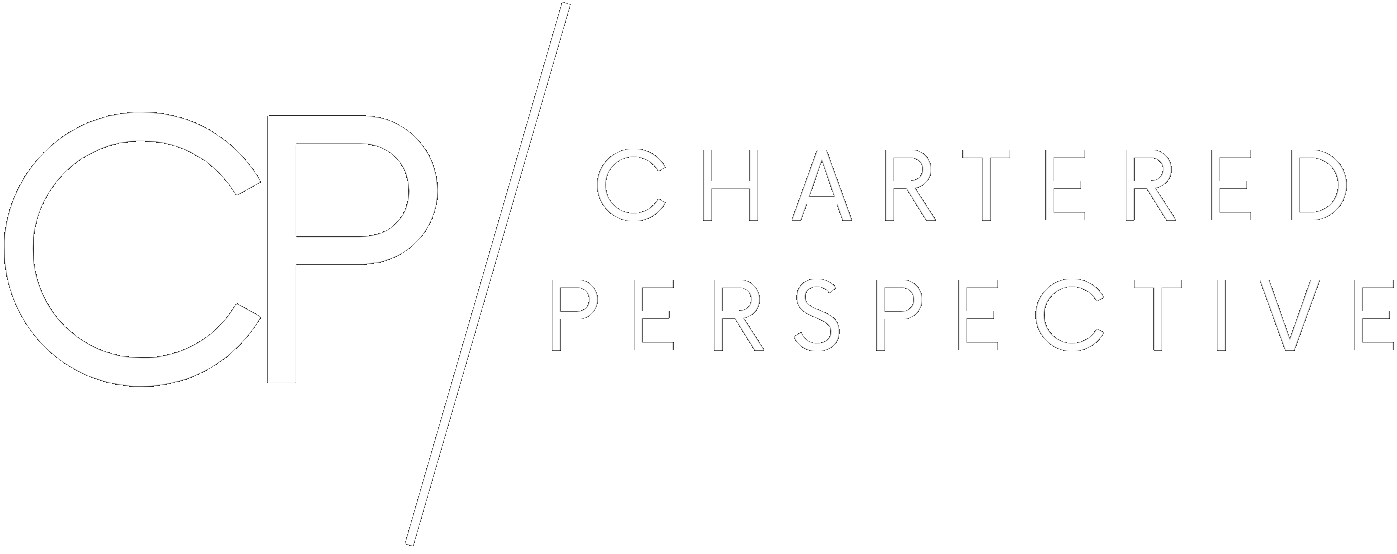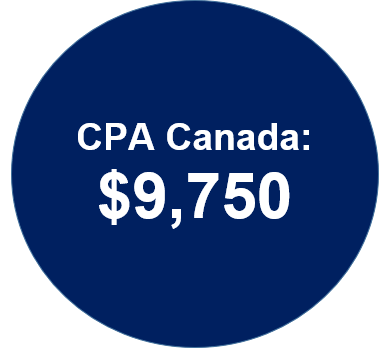Is it Worth Paying CPA Canada Fees Yourself?
Becoming a CPA in Canada is expensive. CPA Candidates must pass through several modules and exams, each of which is quite expensive (see CPA Canada program cost breakdown below).
While many firms or employers will reimburse candidates for CPA fees as they progress through the program (see article: Which Employers Pay for the CPA Designation), students who are either struggling to land their first job out of university or have found a job with an employer who does not offer financial support for the CPA may struggle with the decision of whether or not to pursue the CPA designation given the significant financial burden.
How Much Does it Cost to Become a CPA in Canada?
Assuming a candidate has graduated with a bachelor’s degree which grants entry directly into the CPA Professional Education Program (PEP), candidates will have to pass through the following modules with the following costs (based on CPA Ontario):
Core 1: $1,425
Core 2: $1,325
Elective Module 1: $1,325
Elective Module 2: $1,325
Capstone 1: $1,325
Capstone 2: $1,325
Final Exam (CFE): $1,700
Total CPA Canada Program Cost: $9,750
It costs almost $10,000 to go through the CPA Canada program, and that’s without the costs of any additional study materials, exam deferrals, or rewrites. For students just graduating from university or for young professionals, this can be a daunting figure.
Below, we discuss the alternatives to navigating this steep cost:
Find an Employer Who Will Pay for the CPA Canada Program
As I was graduating with my bachelor’s degree in accounting I had several classmates who had either not yet obtained job offers or had obtained employment with employers who were not willing to cover the cost of the CPA. Many of them shared the same view that they were simply not willing to pay for the CPA out of their own pockets, partly because of how expensive it is and partly because they knew that there are employers out there who will cover the cost for them, so why should they have to pay for it?
In Canada, employers and their willingness and ability to support CPA candidates can be broadly categorized as follows:
Large accounting firms/approved training offices in industry (Big 4, BDO, Grant Thornton, various large industry employers, etc) – typically cover the full cost of the CPA designation and often include ample study time off and other study resources.
Small accounting firms (local/regional firms) and large corporate employers – typically cover some costs of the CPA program on a case-by-case-basis.
Small corporate employers – typically offer little to no support for CPA candidates.
For a deeper dive on the various levels of support offered by different types of employers, please read the article linked here: Which Employers Will Pay for the CPA Designation?
Unfortunately, depending on where you’re located, the entry-level accounting job market may not necessarily be as strong as one would hope. For context, as an accounting graduate in Ontario not far from Toronto, I would estimate that out of my class of 150 or so accounting students, only ~50 were able to obtain employment at an accounting firm or approved training office in industry. Further, I was in what I believe was a relatively highly-regarded accounting co-op program, so students graduating from programs that receive even less recruitment efforts from employers likely have an even worse ratio.
If you are one of the many students who graduates and finds themselves working for an unsupportive employer in terms of obtaining the CPA designation, it’s not too late to make the jump. Accounting firms have a very high turnover rate and are almost always hiring experienced candidates. If you are accumulating relevant experience, you will likely be the prime candidate to be an off-cycle or experienced hire in a year or two after graduation. However, how do you ensure that you have the best chance of being able to make this jump to a desirable employer? See the section below.
Why You Should Pay for and Pursue the CPA Designation Yourself
The reasons for pursuing the CPA designation even at your own cost are two-fold:
The CPA designation will pay for itself over time, and
Making progress towards obtaining the CPA designation will give you a better chance of getting a job at an employer who will then pay for the designation, so you don’t have to.
Let’s discuss these two points further.
The CPA Designation Will Pay for Itself Eventually
The median CPA salary in Canada is between $123K and $154K annually depending on which city you are located in. For a more in-depth discussion on CPA salaries in Canada, please refer to the blog post linked here: How Much do CPAs Earn in 2023?.
Salaries for CPA candidates in Toronto with less than 2 years of experience (typically new grads or early-career professionals) are a median of $66K annually. If these numbers sound appealing to you and are an upgrade over your current compensation, it is fairly safe to assume that the one-time cost of ~$10K to pass through the CPA program will be a worthwhile investment relatively quickly.
Making Progress Towards the CPA Makes You a Stronger Candidate
Putting off pursuing the CPA designation is likely the biggest mistake I’ve seen classmates in less desirable employment positions make. As mentioned above, if you weren’t able to land your dream job at a Big 4, other accounting firm, or an approved training office in industry, you now have to compete with others that are in your position. The large accounting firms in particular are always looking to hire, primarily in key service lines such as Audit and Taxation because of their high turnover rates. In addition to looking for relevant experience, these firms want to see candidates who are committed to obtaining the CPA designation because it shows that you are serious about a career in the accounting industry and that you are a worthwhile investment for the firm. If you can show that you have enrolled in the CPA program yourself and have passed a module or two, this is a very strong signal to employers that you are serious about pursuing this career and makes you stand out among other candidates. I have seen this first-hand with friends who were unemployed but were making progress towards the CPA designation. They were unable to obtain interviews in university however after passing a couple of PEP modules and marketing themselves as “CPA Candidates” they were able to obtain interviews with multiple top firms and receive job offers from them. Further, these firms were then willing to reimburse them for the costs of the CPA program. For this reason, I am a huge advocate of new grads in a suboptimal starting position for their careers to take on the burden of the CPA programs themselves. It will likely pay off sooner than you think.
Remember, your career is something that is going to be with you your entire life. Some sacrifice in the early years to set yourself on the right path is likely to be one of the best decisions you will ever make.




